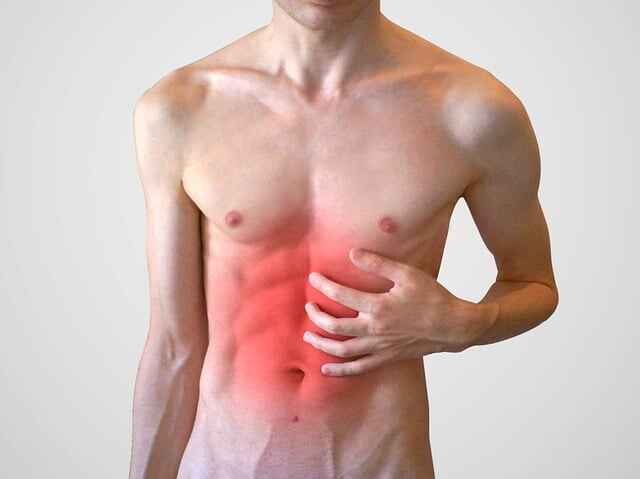What is GERD?
GERD – Gastroesophageal Reflux Disease is a chronic digestive disease that develops when stomach acid repeatedly runs back into the esophagus, the tube that connects the mouth to the stomach. GERD can cause the food pipe to become inflamed, resulting in heartburn and other symptoms.
Most people can manage their GERD symptoms with lifestyle changes and medications. Although uncommon, some people may require surgery to relieve their problems.
Also, Read Myths About Weight Loss You Should Know
Causes
Acid reflux is quite frequent, and it is generally caused by eating a large meal, reclining down after eating, or consuming specific foods. Recurrent acid reflux, or GERD, on the other hand, usually has additional causes and risk factors, and it can lead to more severe consequences.
GERD affects people of various ages and for unclear reasons. It occurs when the valve that prevents stomach contents from returning to the esophagus weakens or opens when it should not.
People are more likely to experience GERD:
- with obesity or persons who are overweight due to increased abdominal pressure
- who are pregnant, affecting around 40-85% of pregnant women
- who smoke and those who have been exposed to secondhand smoke while taking certain drugs, such as certain asthma treatments, calcium channel blockers, antihistamines, sedatives, and antidepressants
Symptoms
GERD has different impacts on various persons. The most typical signs are:
- Heartburn.
- Regurgitation is when food from the esophagus returns to the mouth.
- You experienced a food-related throat tightening.
- Coughing.
- ache in the chest.
- difficulty swallowing.
- Vomiting.
- Throat discomfort and hoarseness.
Children and infants can both have the same GERD symptoms, which include:
- numerous cases of minor vomiting.
- excessive weeping and refusing to eat (in newborns and babies).
- other challenges with breathing (respiration).
- recurring acidic aftertaste, especially after lying down.
- throat roaring.
- choking sensation that may trigger the child to awaken.
- Poor breath.
- Having difficulty going to sleep after feeding, especially for newborns.

Risk factors
The following conditions can increase your risk of GERD:
- Obesity
- Hiatal hernia: Bulging of the top of the stomach over the diaphragm
- Pregnancy
- diseases of the connective tissue, like scleroderma
- The stomach empties more slowly
- Smoking
- Eating huge quantities of food or eating late at night
- Consumption of particular foods (triggers), such as fatty or fried foods
- Drinking certain liquids, such as alcohol or coffee
- Taking aspirin or other drugs
Diagnosis
A thorough physical examination is followed by a detailed description of your symptoms and medical history. Some tests include:
- Upper endoscopy – Upper endoscopy allows your doctor to look inside your esophagus, stomach, and the first section of your small intestine.
- Wireless pH testing – Wireless pH testing allows your doctor to monitor your reflux activity over 48 hours as you go about your daily activities.
- 24-Hour pH impedance – Your doctor may order this procedure to evaluate your reflux. This process continuously monitors your pH level (acidity level) over an extended length of time.
- Esophageal manometry – Esophageal manometry, also known as esophageal motility (movement) investigations, cannot diagnose GERD but can help doctors rule out other disorders that mimic it.
- Barium Esophagram – A barium contrast radiography, often known as a barium esophagram, is an X-ray examination. It is one of the most commonly used tests for GERD.
Treatment
Your doctor could suggest that you start with over-the-counter medications and lifestyle changes. Your doctor might suggest taking a prescription medication and having additional testing done if you don’t start feeling better within a few weeks.
Non-prescription medications include:
- Stomach acid-neutralizing antacids – Antacids that neutralize stomach acid include Mylanta, Rolaids, and Tums, among others. These antacids include calcium carbonate and may provide relief right away.
- Medications that lower the formation of acid – Cimetidine (Tagamet HB), famotidine (Pepcid AC), and nizatidine (Axid AR) are examples of these drugs, also referred to as histamine (H-2) blockers.
- Medications that block acid production and heal the esophagus.- Proton pump inhibitors are more potent acid blockers than H-2 blockers and provide the injured esophageal tissue more time to repair.
Prescription medications include:
- Proton pump inhibitors with prescription strength – Prescription-strength proton pump inhibitors, such as lansoprazole (Prevacid), omeprazole (Prilosec), esomeprazole (Nexium), pantoprazole (Protonix), rabeprazole (Aciphex), and dexlansoprazole (Dexilant).
- Prescription H-2 blockers – These include famotidine and nizatidine in prescription strength. The negative effects of these medications are frequently controllable and mild.
Surgery and other procedure include:
- Fundoplication –The surgeon wraps the top of your stomach over the lower esophageal sphincter to tighten the muscle and prevent reflux. Fundoplication is typically performed using a minimally invasive (laparoscopic) technique.
- LINX gadget – Around the point where the stomach and esophagus converge, a ring of tiny magnetic beads is coiled. The LINX gadget can be implanted via a less invasive surgical procedure.
- Transoral incisionless fundoplication (TIF) – With this new technique, the lower esophagus is partially wrapped using polypropylene fasteners to tighten the lower esophageal sphincter.
Also, Read Sexual Wellness and Better Health: 11 FAQs About Sex Marathon
Diet
Some foods may cause GERD symptoms in some persons. These include:
- greasy foods
- spicy foods
- chocolate
- peppermint
- coffee
- foods containing tomato products
- alcoholic drinks

Prevention
- Consume limited meals on a regular basis.
- Eat small, frequent meals.
- Maintain your upright position after eating.
- At least two to three hours before going to bed, finish your meal.
- Quit or limit your smoking.
- After eating, avoid strenuous activities.
- If you are overweight, you should lose weight.
- Avoid wearing clothes that are too tight around the abdomen.
- Your head should be slightly elevated and angled while you sleep.





